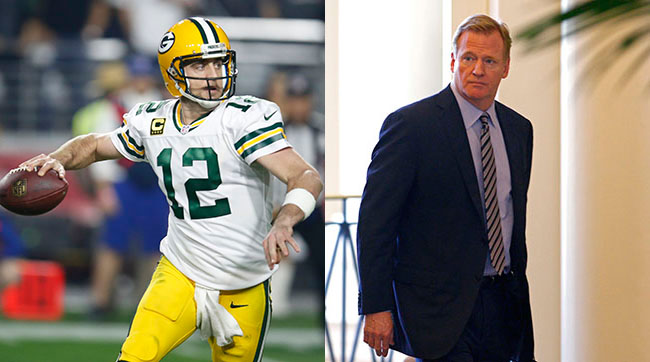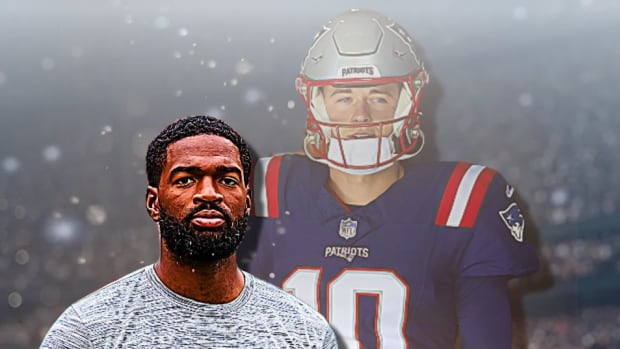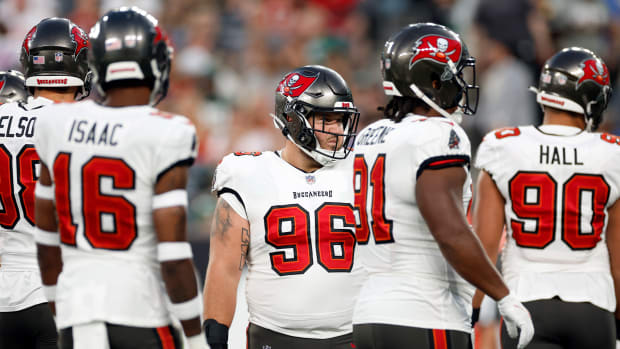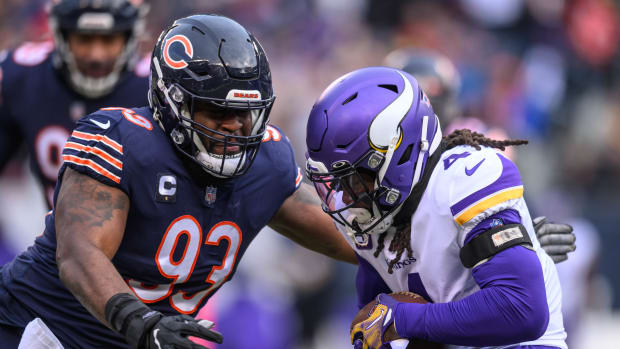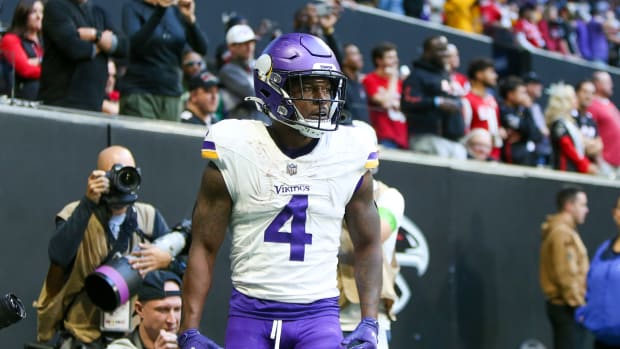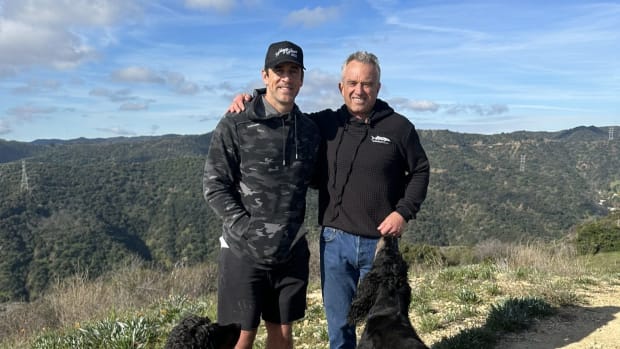Rodgers on Roger
Taking a spin around the league to look at issues from a business perspective...
I have known Aaron Rodgers since the day he was drafted by the Packers, in April 2005. I found him immediately interesting and refreshingly candid, giving what many others considered “hot takes” in his California-cool manner. Here are a couple of them from the past couple of weeks.
Speaking Out
Aaron lamented how NFL players (which, I assume, includes himself) do not speak out on social issues, in stark contrast NBA players. He credited the tolerant environment created by NBA commissioner Adam Silver compared to an NFL order where players are not comfortable being outspoken (save, of course, the Bennett brothers).
From my view, Rodgers is correct. However, there are more basic instincts involved than tolerance from the league. As I note often, the business of football is heavily tilted toward management, much more so than in other major sports. Player contracts are tenuous, lacking future guarantees, with constant and pervasive injury risks. As we look around training camps with 30 players on each roster soon to be fired, NFL players know the numbers and do not want to give management any reason to release them. Speaking out on social causes is far riskier for NFL players than it is for NBA players.
As for Aaron’s implied contrast between Adam Silver and Roger Goodell, that has been clear since the moment Silver stepped into the job. He has talked openly about previously taboo areas such as gambling, LGBTQ rights, and jersey sponsorship—spaces that the NFL still only addresses behind closed doors. Silver’s manner is open, honest and communicative; Goodell is (perhaps purposefully mandated by ownership) bland and unrevealing. These personal differences may also influence how players perceive their ability to speak out.
Another stark difference in the two leagues’ business landscape is player leadership in labor matters. The NBAPA is led by A-listers such as Chris Paul and LeBron James, bringing gravitas to the bargaining table that the NFL has lacked. This is not to slight any of the selfless players in NFLPA leadership; it is simply to note that owners may deal differently with an Aaron Rodgers, Russell Wilson, Andrew Luck or Cam Newton sitting across the table from them.
Signing Off on the Conduct Commissioner
Rodgers also had some comments about the NFLPA’s acquiescence to Roger Goodell’s continuing powers regarding player conduct from the last CBA negotiations. This has become a popular topic, with some players noting, “We agreed to it!”, while others are defending the union because it couldn’t have anticipated Goodell’s overreaching.
As I have noted hundreds of times since the CBA was agreed upon, the player conduct issue was an area that the NFLPA once prioritized—a union official told me back then that Goodell had “jumped the shark”—but chose to pursue other priorities in the harried horse trading that went on to make a deal at the last minute before training camps opened in 2011.
I agree with Rodgers that the NFLPA could have held to its initial priorities and avoided these battles over the last five years (that have resulted in millions of dollars of legal fees). I do understand, however, that the NFLPA had to play defense against an NFL ownership group intent on clawing back in the key area of negotiations: money. To all that has happened since, I strongly believe than any kind of relationship between Roger Goodell and DeMaurice Smith would have been able to smooth some common ground over the last five years. The inherent lack of trust and dislike has made any compromise impossible.
Deadline Stirred Action
Speaking of the NFLPA, their months-long opposition to the NFL’s request that four players submit to interviews regarding an Al-Jazeera report linking them to PED use ended quietly last week. Their once-resolute position against any interview without “credible evidence” changed soon after the NFL imposed a deadline that carried the consequence of suspensions.
I have a couple of reactions here.
First, there appears to be an element of piling on here. The NFL appears emboldened with recent court wins involving Tom Brady and Adrian Peterson, and is now taking a PED policy issue and moving it into the broader “conduct detrimental” space. Once there, the league now can operate more freely.
Also, there was a report this summer that the players, especially Packers’ Clay Matthews and Julius Peppers, were prepared to talk. My sense is that the players and agents may have wanted to proceed, but the union prevailed over their individual interests. This tension was apparent early in the Brady investigative process, as Brady agent Don Yee was thrown under the bus by the NFLPA. The push and pull between the individual and collective interests of players is much more common than people know.
As with Peyton Manning, who reportedly cooperated with the league’s investigation, these four players will likely be cleared. However, along the way the NFL has once again kept its thumb on its adversary, defeating months of posturing by imposing a deadline with consequences.
Josh Brown Inconsistency
The missteps of the Ray Rice matter two years ago and the public shaming that followed caused a seismic reaction from the NFL regarding domestic violence. Immediate high-profile hires with domestic violence experience were made, and the NFL unveiled—without union consent—a new conduct policy that includes a six-game suspension for a first domestic violence offense.
The policy, unveiled with great fanfare in December 2014, has been dormant since. While hopeful to think that there have been no offenders, there has been a tailor-made situation for application of the policy right under the NFL’s nose for over a year. Giants’ kicker Josh Brown, reportedly involved in over 20 domestic violence incidents with his former wife, has only now received his punishment, but it is not the advertised six-game ban. Rather, it is for one game.
The NFL, sensitive to firestorm of criticism upon the announcement, took the rare step of issuing a public statement that emphasized the reason for such light punishment: they were unable to interview the complaining ex-wife. Really?
The Josh Brown disciplinary matter now begs so many questions in an area that had been quiet for some time:
• Didn't all the new hires in this domestic violence sphere advise the NFL that a common and unfortunate problem in this area is the reticence of complaining witnesses to speak?
• Didn’t the missteps of Rice lead to over-investigating rather than under-investigating?
• Didn’t the NFL also fail to interview Greg Hardy’s former girlfriend, yet applied a 10-game suspension (later reduced to four games) anyway?
• Did Ray Rice’s wife attending Rice’s disciplinary hearing—a remarkably unbelievable error of procedure—influence the light punishment that he received?
• Does the NFL truly care about domestic violence now that it got through the incidents of two years ago and unveiled its (yet-to-be-used) get-tough policy?
• Do we really have to ask the question of whether Brown’s punishment would be much harsher if there was video?
Roger Goodell has been highly criticized for being too hard on player discipline and for being soft on discipline, first with Ray Rice (pre-video) and now with Josh Brown. The real problem, it would appear, is not whether discipline is too tough or too light, but rather, too arbitrary. There does not seem to be objective standards, leading to the perception that discipline is random. It also opens the door to an ominous public perception of favoritism afforded certain owners such as Steve Biscotti (Ravens) and John Mara (Giants), an impression the league strongly tries to avoid.
I understand that no misbehavior is the same; every situation is different with different circumstances. However, some form of “tote-board” with criteria would create a level of transparency that would go a long way toward public and player perception of the NFL’s seemingly random discipline process.
• Question? Comment? Let us know at talkback@themmqb.com
































